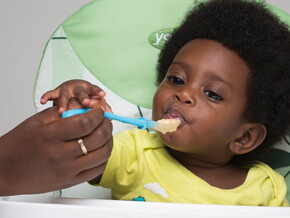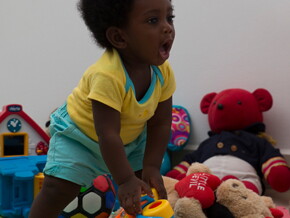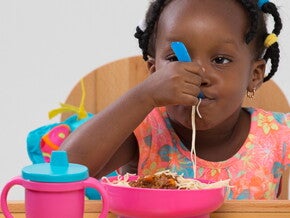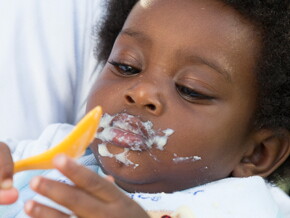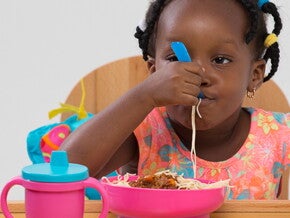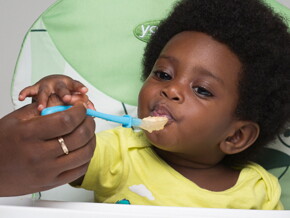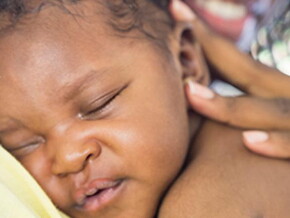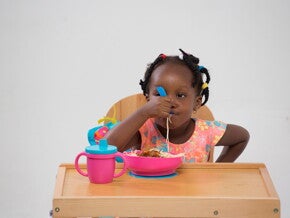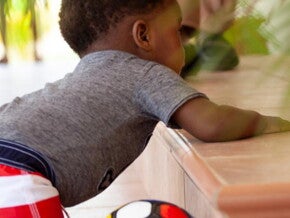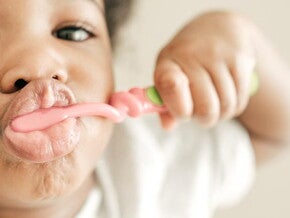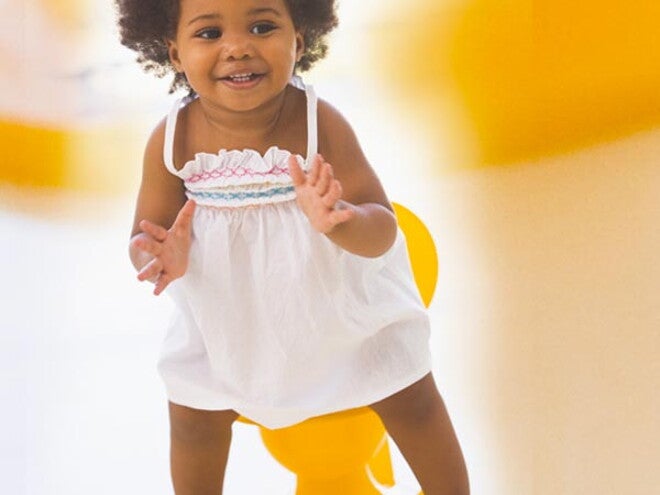
Once you have decided when to potty train, patience is the key. The potty training process takes time, so don't rush your child, and don't get discouraged; some kids may not be ready until they reach 24-30 months.
See the signs
Some health experts for example, the Canadian Pediatric Society, suggest that you watch for these cues when deciding when to potty train. Your child might be ready for potty time when he:
- Stays dry at least two hours at a time during the day or is dry after naps.
- Shows facial expressions, postures, or says words that he may need to go potty.
- Can walk to and from the potty, and helps undress himself.
- Is steady and balanced when sitting on the potty.
- Can follow one or two simple instructions.
- Has regular and predictable bowel movements.
- Is uncomfortable in dirty diapers and wants to be changed.
- Shows an interest in the potty; watches you, or likes books about the potty.
- Asks to wear big-kid underwear.
- Wants to please you and is becoming more independent.
By age 3 or 4, most kids can use the potty all day; but be patient, staying dry all night may take a little longer.
Getting started: How to potty train
You've noticed many of the potty-ready cues and have decided that it's time for training. Here are some tips on how to potty train your little one.
- Talk to your child about body parts, and what a potty is used for.
- Choose simple words such as: go potty, pee, and poop and be consistent so your little one doesn't get confused or embarrassed.
- If others care for your child, talk to them about your potty training plans so they are consistent too.
- Dress your child in clothes he can pull up and down easily.
If the household routine has been upset, perhaps you're getting ready to move, or a new sibling has arrived, consider waiting until you're settled into a more relaxed routine.
Prepping the potty-room
Now that you and your toddler are ready to get started:
- Always go with your child; ensure the bathroom is child-proofed (cleansers and medicines are locked up).
- A potty is more stable and secure than a regular toilet because your little one's feet can touch the floor, if you don't have a potty be sure to use a toilet seat adapter and a footstool.
- Make the potty easy to get to, consider putting one on each level of your home, or in each bathroom.
Establish a routine
You'll soon start to notice the signs that he's gotta go. Take him to the potty, and keep him seated for only a few minutes at a time. Be positive and encouraging, and if you get strong resistance, don't push, it may not be the right time to start training.
- Make potty trips a part of the daily routine, such as in the morning when your child wakes up, after meals or before naps. If he doesn't go, don't worry. Just try again later.
- Offer him a book or toy to play with so potty training is not a chore, make it more interesting. Boys will sit while they learn to pee; standing comes later.
- Teach toilet hygiene from the start: wiping, flushing and hand washing. Remember girls should be wiping from front to back.
Read all about it
Using books can help your child better understand the process because he can relate to the pictures or illustrations. There are fantastic books available, and you can often find specific girl and boy versions.
Be supportive
- Your child will soon succeed but only when he's ready, so don't try to force results.
- Be patient and cheerful; give lots of hugs and praise when he succeeds. Rewards aren't necessary.
- Expect accidents because they're sure to happen. But be sure not to punish or overreact, just have a change of clothes on hand and keep at it.

